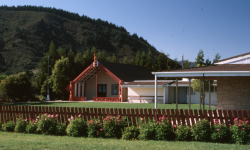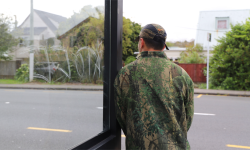[{"id":2572,"order":0,"imagePath":"https://admin.ezystream.com/static/images/article/1bd7d8c4-533d-4070-a590-9ac4e3616803.png","type":"image","content":"https://admin.ezystream.com/static/images/article/1bd7d8c4-533d-4070-a590-9ac4e3616803.png"},{"id":2573,"order":1,"contentText":"Second-generation youth and young adults who have grown up within migrant churches often struggle to find where they belong. Is it with their parentsu2019 traditional-style, first-generation church? Or is it in the Western-style churches of their friends, or even outside the church altogether? Steve Davis tells us about several individuals and ministries he believes are enabling migrant churches and their second-generation young people to engage with this generational challenge in constructive ways.
When I spoke recently at a migrant church, one of the younger musicians told me this after the service:
I donu2019t have any space in my family and church to really express who I have become in this city, and Iu2019m constantly navigating two identities.
One is while Iu2019m at home. My parents expect me to always respect and obey them explicitly, without question, and to hold the cultural values they hold dear as my own. Plus at church, the parents and older generation have all the power and authority, and they define what happens there by their beliefs and norms.
But when Iu2019m at school and outside the home, Iu2019m facing numerous challenges to those values. I think and believe very differently to my parents and their generation. I also am bored and donu2019t understand why they express their beliefs in the way they do. Iu2019m ready to walk out!
I know of many churches where this is happening, and at an alarming rate.
The second-generation flow
Rev Dr Samuel S Chetti, a past president of the American Baptistsu2019 Southwest Region (south-western USA, Los Angeles and Hawaii), shared a u2018Flow of Generationsu2019 presentation at a Carey Baptist College seminar in 2014. In it, Dr Chetti described the dynamics that firstu2011generation churches face, using the spawning of salmon as an example.
u201cThe inevitable flow towards salt water is the destination of salmon, no matter how many dams you put into place,u201d he said. u201cYou cannot keep the salmon long term in a freshwater environmentu2014it is inevitable that they swim towards the sea.u201d1
The lesson is simple: for first-generation parents to insist that their second-generation children grow up in the faith templates and shapes of the church of their own spiritual formation doesnu2019t work. Their children are navigating a different context and culture. The challenge is for the first generation to encourage the next generation, wisely and compassionately, to explore the faith patterns that fit into their new context.
Resourcing migrant churches
A valuable resource in this area is the book Tapestry of Grace: Untangling the Cultural Complexities in Asian American Life and Ministry by Benjamin C Shin and Sheryl Takagi Silzer. Sheryl will be in New Zealand later in the year, providing workshops in both building cultural awareness and building a multicultural team. Watch for updates on the Baptist communication networks for dates and times in September and October.
I have learned from my Australian counterparts of two ministries that are responding to these multigenerational challenges. The first one is called Red and is located in Adelaide.2 Their mission focus is resourcing Chinese churches in that city to best navigate the u2018Gen 2u2019 challenge. This is led by second-generation Chinese who have a heart both for mission and for respecting their cultural background in this new context.
RICE Movement is another response. RICE stands for Renewal Inter-Church Evangelism. Initially started in 2002 as an outreach event of five Sydney youth groups, today RICE is a youth movement that holds annual evangelistic rallies in multiple cities, including Auckland, plus various other events.3
The other Kingdom benefit of RICE is that while the first-generation Chinese churches in Auckland are often segmented from one another, RICE brings a cross-denominational connection that has not been there before.
Elisa Choi (Epsom Baptist Church) has been a champion for RICE Movement in the Auckland region. This year she is RICEu2019s rally director, coordinating all of the teams leading up to the annual rally and all the other events between as well.
She says, u201cThere are about 80 Chinese churches within Auckland alone, some of them within less than a kilometre of each other. Last year, if it wasnu2019t for RICE rally, they wouldnu2019t even know that each other existed. There was a whole bunch of young people who thought they were just soldiering on and ministering in their own little silos; little did they know that they had brothers and sisters going through the same thing just across the road.
u201cIt was really powerful to have everybody come together, share what they have been going through, and be able to rely on each other and on their unity in Christ to build each other up. We can empower each other to be better in our churches and bring whatever we have learnt and take that back to our churches.
u201cWe are also seeing a huge swell of church leadersu2014not only Baptist church leaders, but from other denominations toou2014coming together, to pray for this next generation and for unity within Auckland, within New Zealand and within the body of Christ itself.u201d
A way ahead?
Gen 2 young people are not limited by the constructs of the previous generation. Indeed, u2018Panu2011Asianu2019 (the starting point is Asian, and not Pu0101kehu0101) multicultural church planting may well be the most effective way ahead to engage and disciple the massive culturally diverse groups that we are seeing in Auckland and New Zealand.
Story: Steve Davis
Steve is the national team leader for Baptist Multicultural Inclusion Ministries.
 Our experience with RICE Movement
Our experience with RICE Movement
The first generation in our church are pretty much Hong Kong-born and Cantonese-speaking. The 1.5 (who migrated when they were children) or 2nd generation (born in New Zealand) are culturally very different. For example, my daughter. She came to New Zealand when she was about eight. She teaches in a primary school now; she thinks and prays in English, but we speak Cantonese at home. So, she is bilingual but she is prone to a Kiwi kind of mindset.
We initially heard about RICE Movement about twou2011and-a-half years ago. Steve Chong, RICEu2019s founding director, came over from Australia to speak at a Bible camp at Ngu0101ruawu0101hia. There were a few Chinese pastors from Auckland there. We were excited to hear about RICE because it was a 1.5 and 2ndu2011generation Asian movement. It had been going for about 15 years at that stage. I thought it was good for the young people to have peers and it is crossu2011church, crossu2011denominational.
RICE Movement started planning their first Auckland rally at the end of 2017. I thought it would be good for our young people to be involved, but I also wondered if it would take too much of their time and effort and then they would be serving less in church. But the leadership decided it would be good for them. And I believe it has.
The rally was held in August 2018. It is great to gather young people from various churches together and for them to realise they have the same sort of identity and that we can use the gifts of God and our experiences to reach out, not just to Chinese or Asiansu2014there are Europeans and other different groups who join in too.
It has been over a year now and around 30 of our young people are involved. We have seen people grow and become renewed and on fire for the Lord. It has encouraged our older members to see this, especially the parents. What more could a pastor ask for!
Story: Albert Tang
Senior Pastor, Pakuranga Chinese Baptist Church
References:
- Dr Sam Chetti, u201cNext Steps on the Diversity Journeyu201d (seminar presented at Carey Baptist College, November 2014).
- facebook.com/red.ministry.
- ricemovement.org/upcoming-events.
","type":"text"}] Let the salmon swim!
Stories
Growing Disciples | Steve Davis & Albert Tang | 01 June 2019
- Syntax error, malformed JSON
Read More Articles
Register now for Hui ā Māori 2024: ‘no greater time to be unified’
A call for Baptist Māori to engage with the significant kōrero coming to Hui ā Māori 2024.
Reflections on the season of Matariki
Three Baptist Māori share what they’ll be doing to acknowledge this season.
Are our social support services making a difference?
Transactional or transformational support: what services should our local church aim for to empower our communities?


